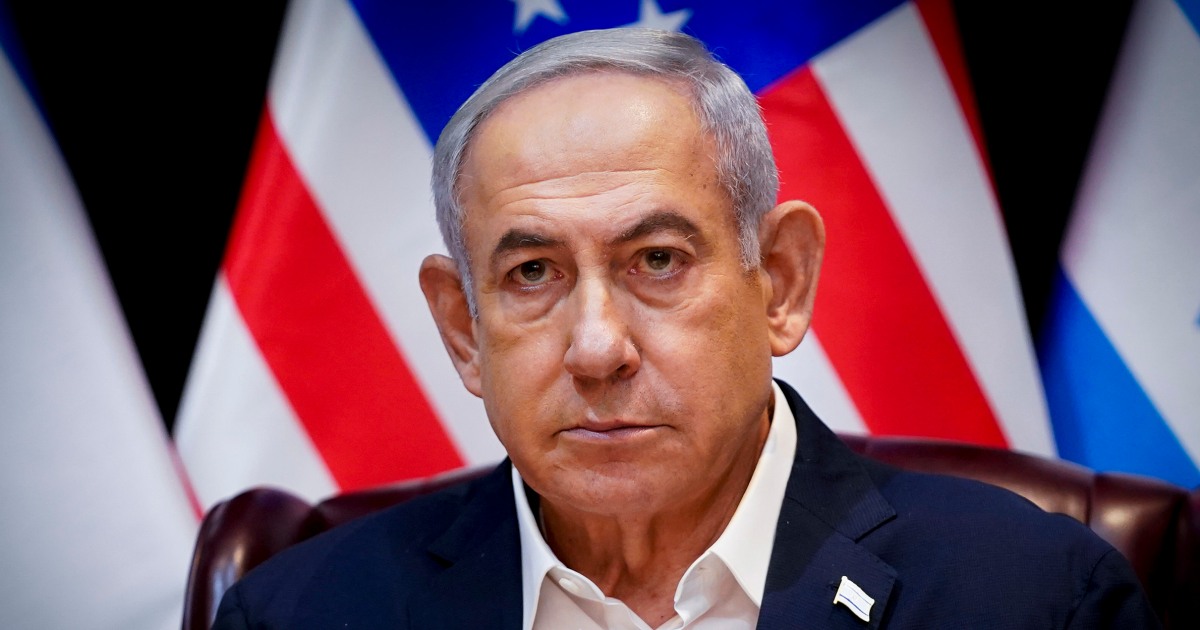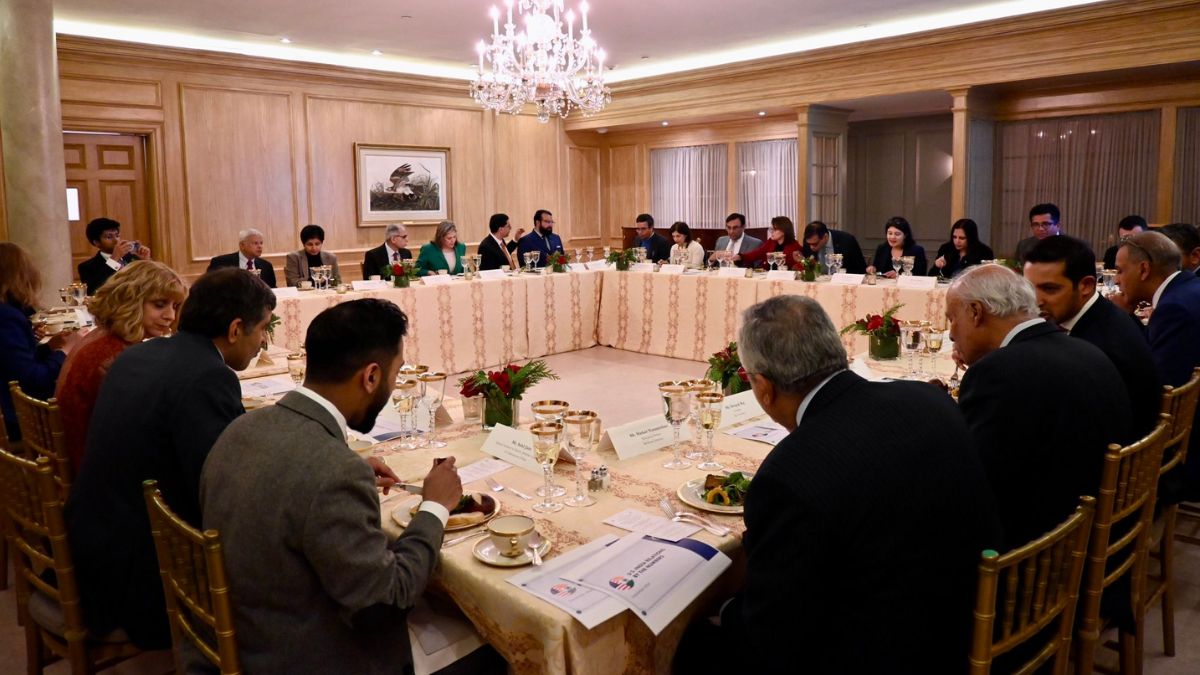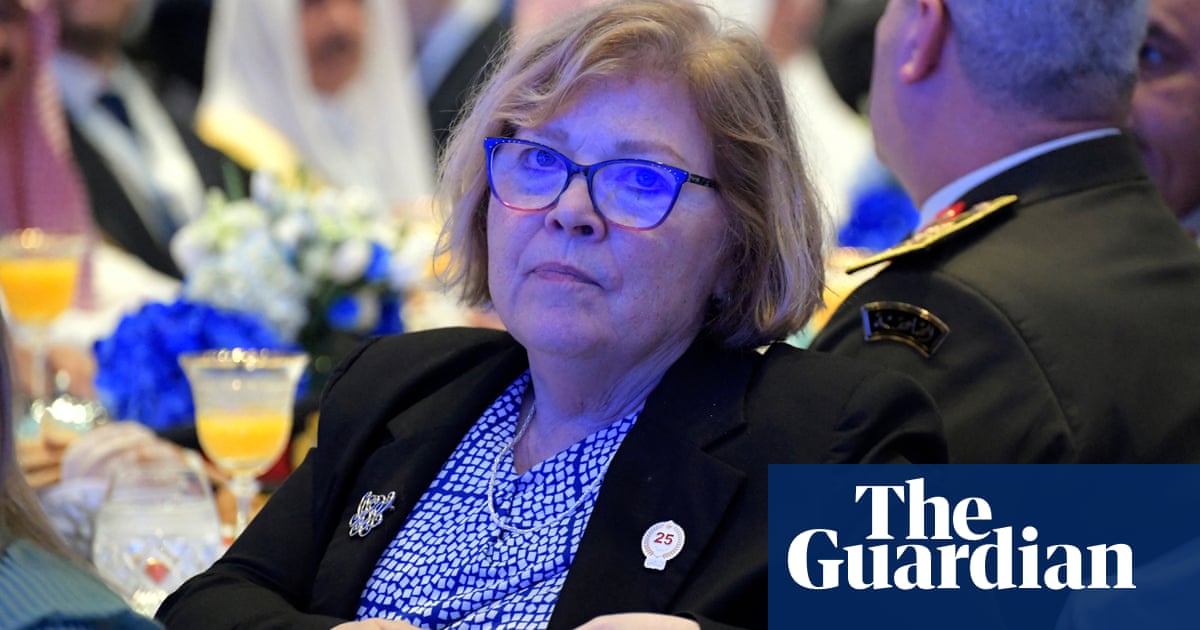
Vice President Kamala Harris will not preside over or attend Prime Minister Benjamin Netanyahu‘s joint address to Congress on Wednesday. Instead, Sen. Ben Cardin, D-Md., will oversee the event, two congressional aides told NBC News on Monday.
While the vice president typically presides over joint addresses, Harris is scheduled to be in Indianapolis on her presidential campaign, which she launched Sunday after President Joe Biden dramatically dropped his re-election bid and endorsed her in the race against former President Donald Trump. However, she is expected to meet with Netanyahu separately during his visit.
Harris’ office did not immediately respond to a request for comment.
Cardin will preside over the joint address after Sen. Patty Murray D-Wash., declined an invitation to oversee the event, her office confirmed to NBC News. Murray, the president pro tempore of the Senate, will also not attend the address, which dozens of liberal lawmakers are expected to boycott.
“Securing a lasting, mutual ceasefire is of the utmost importance right now, and I will continue to push for one to be reached as soon as possible. I hope Prime Minister Netanyahu will use the opportunity to address how he plans to secure a ceasefire—and lasting peace in the region,” Murray said in a statement Monday.
The last time the Senate’s presiding officer for a joint meeting or session of Congress was an acting president pro tempore for a speech of a visiting dignitary was when Sen. David Pryor, D-Ark., was named acting president pro tempore for the Oct. 18, 1989, address by South Korean President Roh Tae-woo.
Cardin, an Orthodox Jew, has been a vocal advocate for Israel in the months since Hamas’ Oct. 7 terrorist attacks and amid Israel’s ongoing offensive in Gaza.
Netanyahu’s visit comes as he seeks to strengthen Israel’s relationship with its closest ally as he faces mounting pressure to strike a cease-fire deal that would bring an end to fighting in Gaza, where Palestinian health officials say more than 39,000 people have been killed in the Israeli offensive in the enclave following Hamas’ multipronged attacks on Oct. 7.
Before he set off on Monday, Netanyahu said that regardless of whoever is elected president in November, Israel would remain “America’s indispensable and strong ally in the Middle East.” He said he planned to meet with Biden, who has been recovering from Covid.
A spokesperson for Netanyahu’s office told NBC News the meeting with Biden was expected to take place Thursday at the White House at 1 p.m. ET.
Netanyahu added that it would be an opportunity to thank Biden “for the things he did for Israel in the war,” which began after Hamas launched multipronged attacks on Israel, killing around 1,200 people and taking approximately 250 people hostage.
An Israeli government spokesman said Netanyahu would address both houses of Congress on Wednesday in a bid “to anchor the bipartisan support that is so important for Israel.”
In addition to meeting with Biden and Harris, aides to both Netanyahu and former President Donald Trump, have also discussed the possibility of a meeting this week, according to six people familiar with the discussions.
Nimrod Goren, senior fellow for Israeli Affairs at the Middle East Institute, said Netanyahu appeared determined to give “a positive spin” to his visit as “kind of a closure period” for Israel’s relationship with the Biden administration before a new leader takes power next year.
“Whether Biden plays along with it or not, that will be interesting,” Goren said, adding that the president could use his final months in office to “put more pressure on Netanyahu” to agree to a cease-fire deal, enshrining the achievement as part of his legacy.
But Gershon Baskin, an Israeli who has previously advised his own government and several world leaders on the Middle East peace process and acted as a mediator with Hamas for decades, said he believed Netanyahu would not “take Biden very seriously.”
“He’s out of the race. He has no chance of winning. He’s not important to Netanyahu anymore,” he said, adding that Netanyahu most likely viewed Biden as “a lame duck.”
Netanyahu’s visit is likely to be more “low key” than he might have initially anticipated, Goren said, as he faces the difficult balancing act of seeking to appeal to major players with conflicting interests. Baskin offered a similar analysis.
Among those Netanyahu is likely to seek to strengthen bonds with is Harris, who has appeared more willing than Biden and other American politicians to publicly criticize him and express empathy for the plight of Palestinian civilians in the Gaza Strip, former officials and analysts say.
NBC News reported in March that National Security Council officials toned down parts of a speech by Harris on the need for a six-week cease-fire and hostage release deal between Israel and Hamas. A Harris spokesperson at the time called the portrayal “inaccurate.”
The vice president has strong ties to the Jewish community in the U.S., with her husband, second gentleman Doug Emhoff, becoming the first Jewish spouse of a vice president and taking on the role of liaison to America’s Jewish community.
“Meeting with Kamala Harris gets a new layer of importance now,” said Goren. “Before, it wasn’t seen as the key to this visit, and now it’s much more significant.”
A meeting with Trump would also most likely be a priority for Netanyahu and would “showcase some political strength” in his ability to reset relations with the White House should it come under Republican leadership next year, Goren said.
As of Monday, any plans for a meeting did not appear to have been finalized. A person familiar with Trump’s schedule said Tuesday would be the only day that would logistically work for him.
On Monday, Netanyahu met with representatives of families in the U.S. whose loved ones are among those being held hostage in Gaza by Hamas. He told them Israel was determined to bring all of the hostages held in Gaza back, including those killed.
The meeting came as it emerged that two hostages, Yagev Buchshtab, 35, and Alex Dancyg, 76, had died in Hamas captivity. The Israel Defense Forces said the circumstances of their deaths were still under investigation.
Netanyahu’s visit has been a point of contention in the U.S., where protests calling for an end to the war are expected. Back home before he set off, families and supporters of Israeli hostages held in Gaza rallying at Tel Aviv’s Ben Gurion International Airport on Sunday to call on Netanyahu to focus on striking a deal to secure their release.
Netanyahu is also facing pressure from rights groups after the International Court of Justice, in a landmark opinion on Friday, ruled that Israel has violated international law with its occupation of Palestinian territories, including Gaza, the West Bank and East Jerusalem.
Meanwhile, Israel has continued to ramp up its offensive in the Gaza Strip. On Monday the IDF ordered Palestinians evacuate parts of Khan Yunis in southern Gaza. Health officials in the enclave said at least 70 people had been killed and more than 200 injured during the Israeli military’s operations in the area.
The IDF said the calls for temporary evacuations had been made to “mitigate harm to the civilian population” and later said its forces had struck more than 30 “terror infrastructure sites in Khan Younis.”
The orders came after thousands had fled to the city after Israel stepped up its offensive farther south in Rafah, the city bordering Egypt that the Israeli military had once declared a safe zone.







